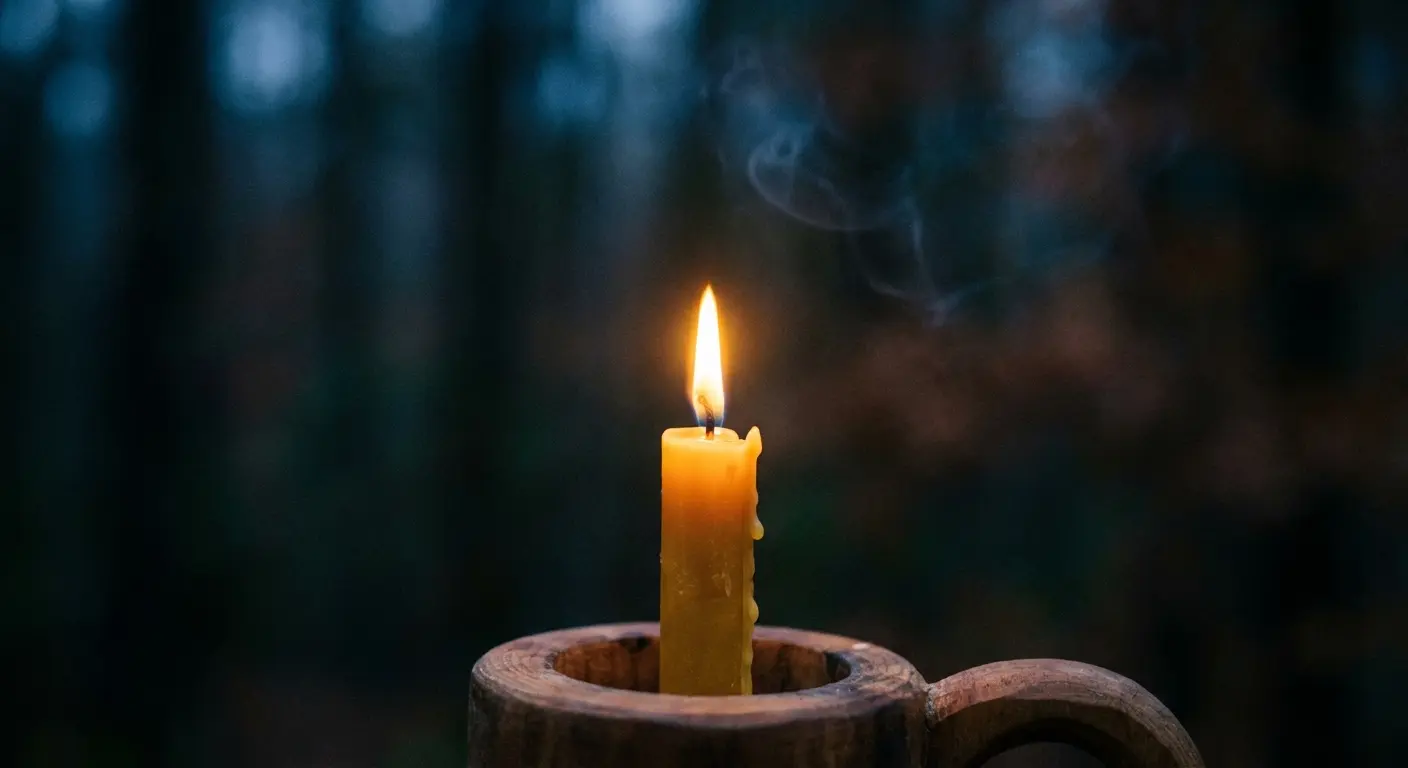The Short Version
- It’s complicated: Sisters are often a mix of best friend, rival, and second mother. Your speech should be honest about that dynamic.
- She was your witness: You lost the person who remembered your childhood. Focus on shared history and inside jokes.
- Ditch the timeline: Don’t list dates. Group your stories by her personality traits (e.g., “She was stubborn” or “She was generous”).
- It’s okay to laugh: Humor is a release valve. Funny stories are often the most healing parts of a funeral.
- Prepare for the nerves: Print your speech in huge font, bring water, and have a backup plan if you can’t finish reading.

Quick Resource
Sister Eulogy Generator – A guided tool designed to help you write an honest, heartfelt eulogy that reflects the unique sister bond.
https://eulogygenerator.com/sister-eulogy-generator/
Let’s be honest: this feels impossible. Trying to sum up the life of someone who knew you before you really knew yourself is a massive weight to carry. There’s this pressure to write a masterpiece, thinking that if you write a long, epic speech, it somehow proves how much you loved her. But that’s not how it works.
Usually, the short, honest tributes are the ones people remember. As you start this, keep in mind that “most eulogies are only about 400 words, or 2–3 minutes spoken.” That’s a relief, right? You don’t need to write a biography. You just need to capture a few moments that show who she really was to you. Quality over quantity, always.
Start with the moments that matter most using the Sister Eulogy Generator → https://eulogygenerator.com/sister-eulogy-generator/
The Messy, Beautiful Sister Bond
If you want to write something that lands, you have to look at your relationship honestly. A sister isn’t just a sibling. Depending on the day, she was your best friend, your bitter enemy, your second mom, or your partner in crime. If you stick to generic polite phrases, you’ll miss the point. You have to dig into the messy, real history you shared.
If you need a little help figuring out where to start, you can look at guides on crafting a sister’s eulogy, but trust your gut first. Honoring her means embracing the whole relationship—the arguments over borrowed sweaters right alongside the late-night phone calls.
Capture the full, honest sister dynamic with the Sister Eulogy Generator → https://eulogygenerator.com/sister-eulogy-generator/
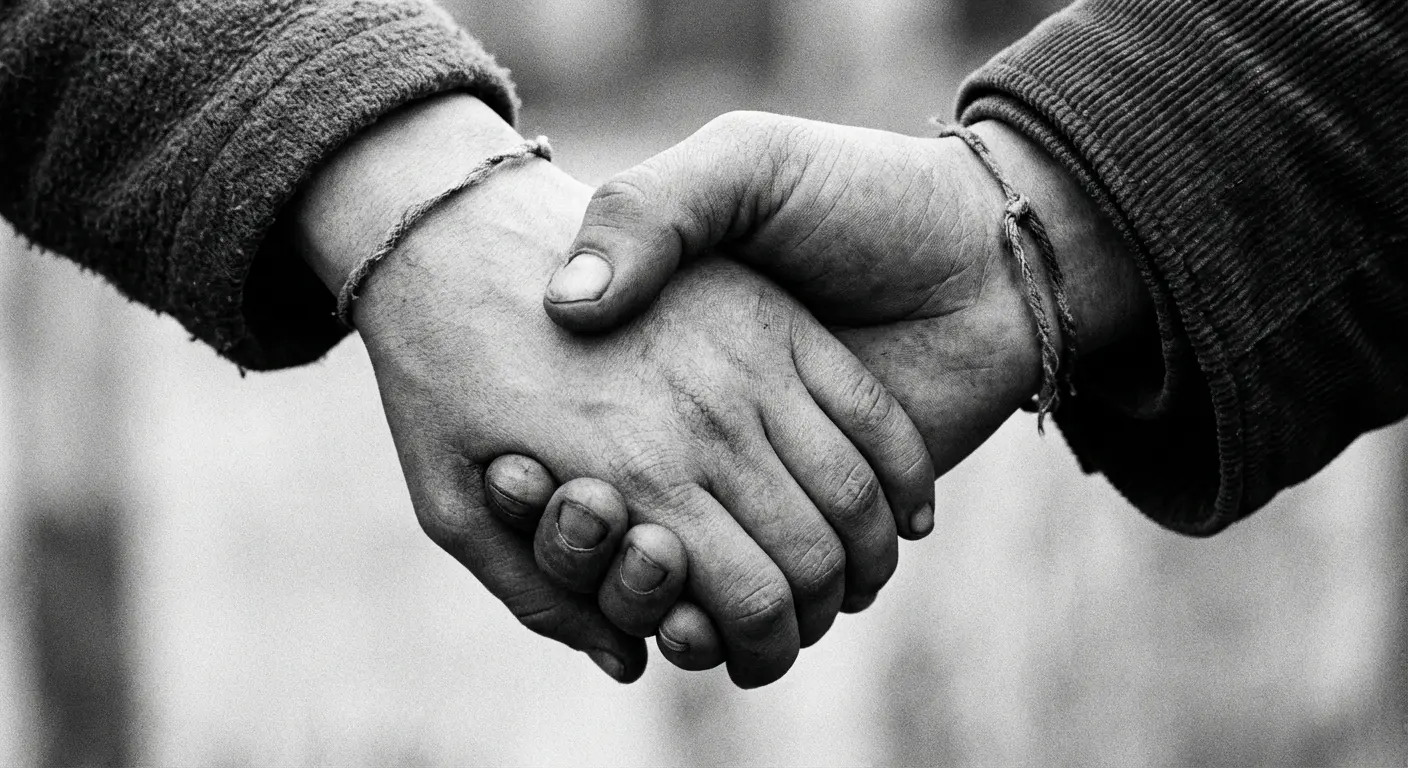
What Was Her Role?
Every sister has a “rank” in the family that shapes the dynamic. Grieving an older sister who protected you feels different than grieving a younger one you used to babysit. Pinpointing exactly how she fit into your world gives your speech a clear direction so it doesn’t sound like a template.
| The Vibe | The Feeling | The Theme |
|---|---|---|
| The Second Mom | Gratitude for safety and advice. | “She taught me how to survive before I knew what I was doing.” |
| The Partner in Crime | Mischief and secrets. | “We had a whole language that didn’t need words.” |
| The Little Spark | Protection and lost potential. | “She was the brightest light in the room, gone way too soon.” |
| The Rival Turned Best Friend | Growth and respect. | “We fought like cats and dogs, but we loved harder.” |
The Trailblazer (Older Sister)
If you lost an older sister, you’re probably feeling a mix of gratitude and panic. She paved the road for you. She taught you how to handle your parents and probably bossed you around enough to toughen you up. Lean into that. Talk about the lessons she taught you and acknowledge that navigating the world without her map feels scary right now.
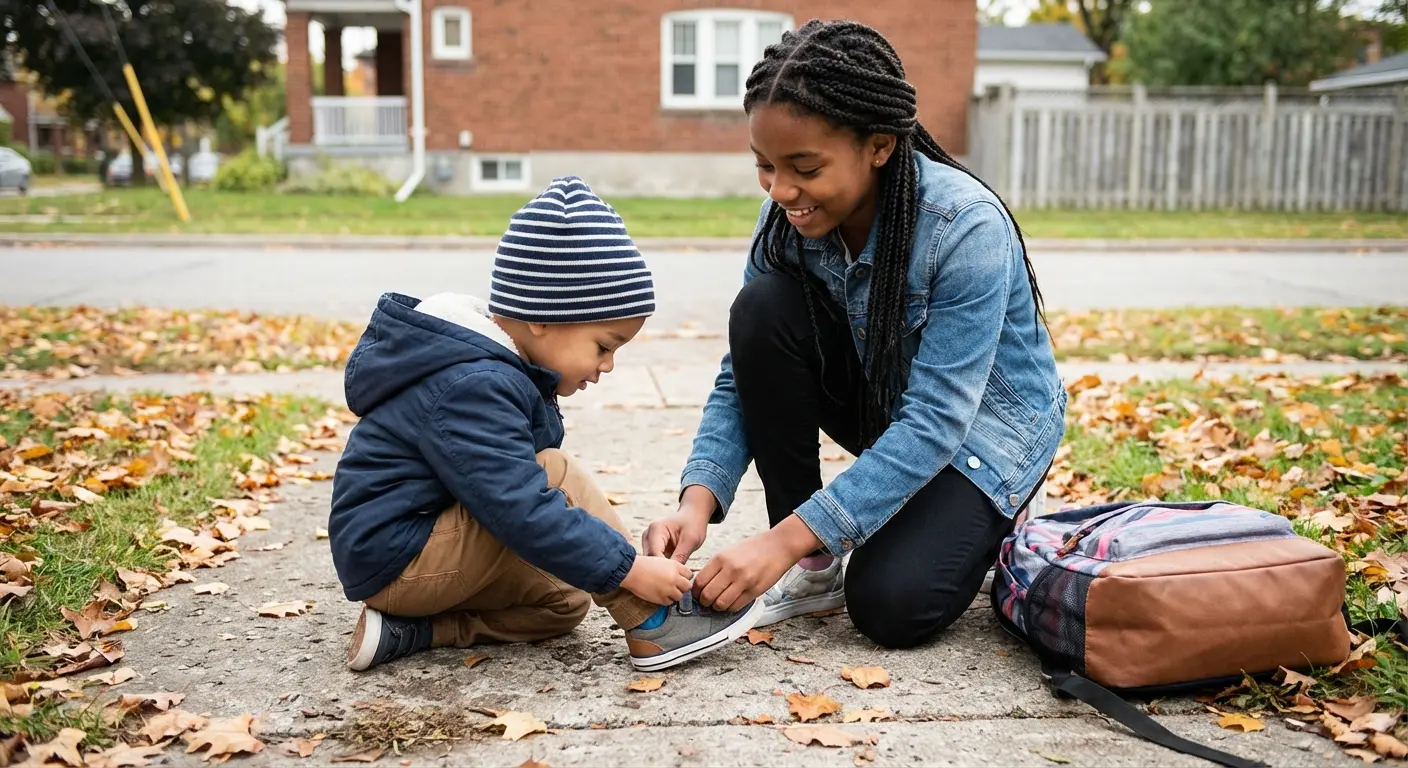
The Spark (Younger Sister)
Losing a younger sister flips the script. You likely felt a need to protect her, and now you’re dealing with a life cut short. Your speech should reflect the joy of watching her grow up and the tragedy of what she didn’t get to do yet. Focus on her energy and that specific spark she brought to family gatherings.
Losing Your Witness
Siblings are the only people who truly know the weird history of your family. Losing her means losing the only other person who remembers that one disastrous road trip in 1998 or exactly how your dad sneezes. You aren’t just missing a person; you are missing the keeper of your shared past.
Preserve shared memories and inside history with the Sister Eulogy Generator → https://eulogygenerator.com/sister-eulogy-generator/
That sudden silence is heavy. Alex Ostebo spoke about losing her sister, Denali, saying, “the world has to keep spinning, but it is painful just how little the world stops for someone when they pass.” It’s okay to say that out loud. It’s okay to admit the world feels quieter and lonelier without her.
The Keeper of the Vault
She held the keys to memories you might have forgotten. A touching part of a tribute is acknowledging that a library of private history has closed. Mention that she knew versions of you that no one else ever will. It validates your loss and reminds everyone how unique your bond was.
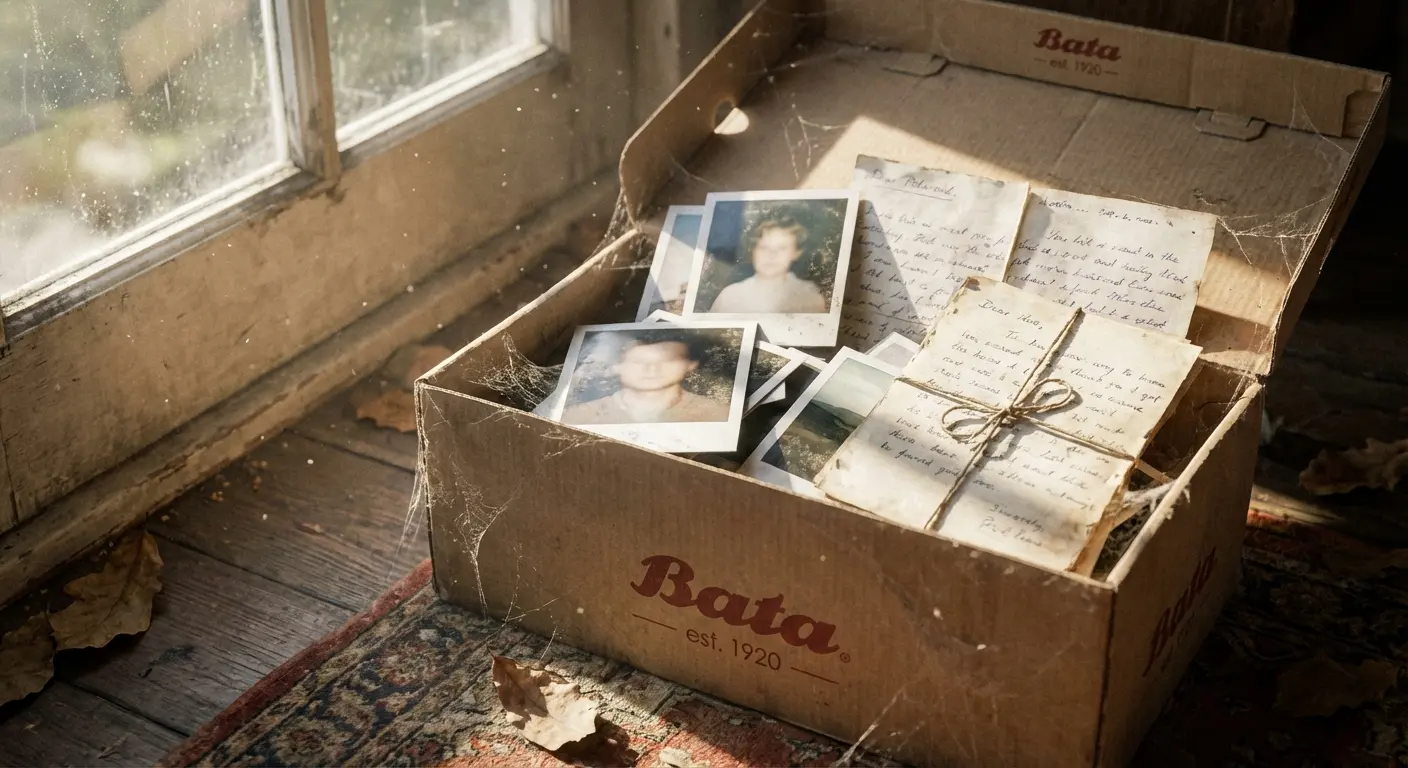
Talk To Her, Not Just About Her
Here is a trick: shift your rhetoric. Instead of telling the audience “She was great,” try speaking directly to your sister. Use “You.” It keeps the connection alive in the room and makes the moment feel intimate, even in a crowd.
Your Secret Language
You two probably communicated with just a look. Try to describe that. You don’t have to tell the secrets themselves, but describing the way you communicated highlights how close you were. It reminds everyone that you shared a world that was yours alone.
Getting the Words on Paper
Staring at a blank page while you’re grieving is torture. So, don’t try to write a “speech” yet. Just get the raw materials out. This isn’t about being a professional writer; it’s about gathering your memories and stitching them together.
Start small. Don’t worry about a fancy intro. Just write down specific memories. A eulogy is built on small, specific bricks, not grand philosophical statements.
Turn small memories into a meaningful tribute with the Sister Eulogy Generator → https://eulogygenerator.com/sister-eulogy-generator/

Picking the Right Stories
You probably have a million memories swirling around, but you can’t use them all. Cast a wide net first, then be ruthless. Look at samples for inspiration, but trust your own memories above all else. You want stories that show *who* she was, not just a timeline of her life.
If you’re struggling, reading through other sister eulogies can help spark ideas. Just use them as a roadmap, not a script.
Prompts to Beat Brain Fog
Grief makes your brain foggy. Don’t wait for inspiration to strike. Ask yourself specific questions to trigger the memories. Sometimes a quote about sisters can help unlock these thoughts, too.
Try answering these:
- [ ] What song will always remind you of her?
- [ ] What was the funniest fight you ever had?
- [ ] What was her signature catchphrase?
- [ ] When did she make you feel the safest?
- [ ] What was a hidden talent she had?
Structuring the Speech
A great speech takes the audience on a little journey. You need a beginning, middle, and end, but please—don’t just go in chronological order. We recommend grouping things by theme. It keeps people engaged and hits harder emotionally.
Organize stories by personality and traits using the Sister Eulogy Generator → https://eulogygenerator.com/sister-eulogy-generator/
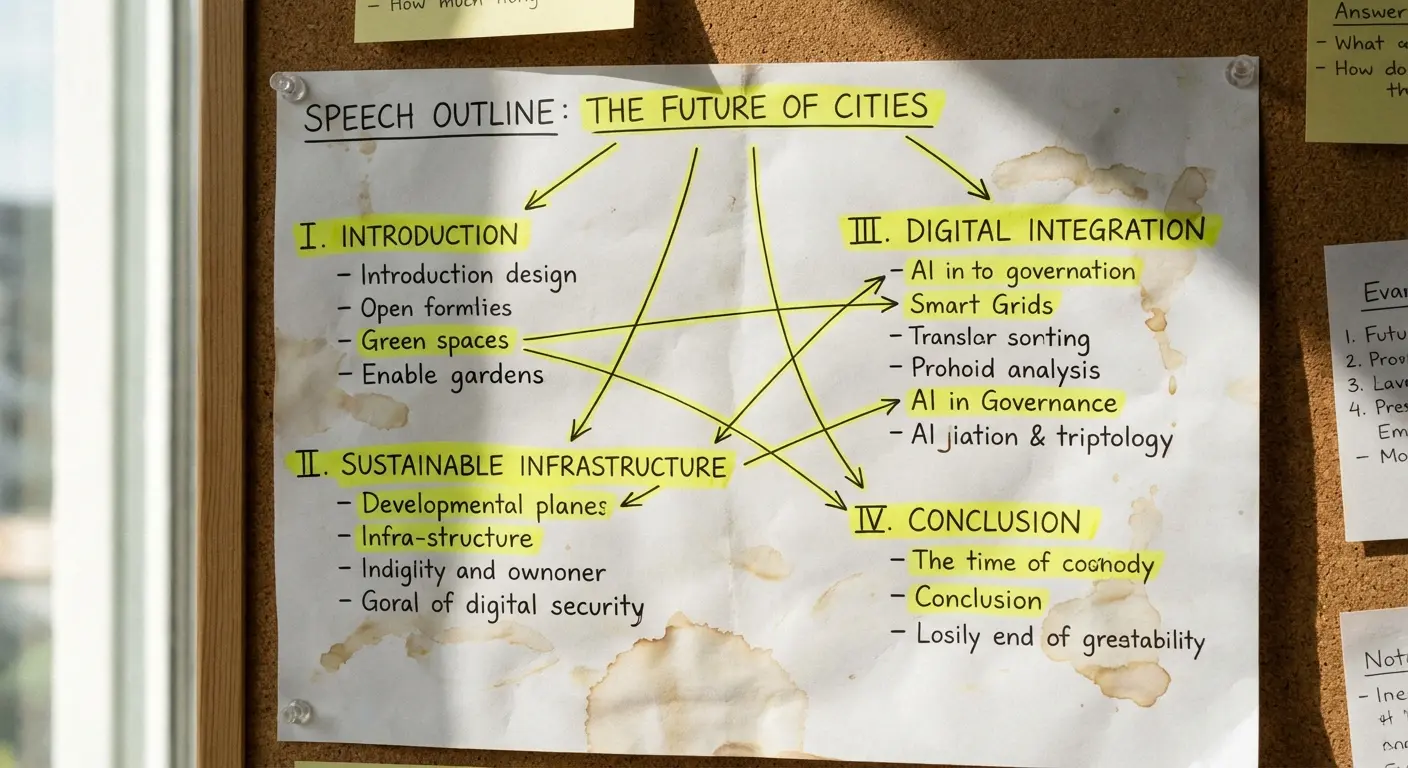
The Hook: Skip the Resume
Nobody needs to hear her birth date in the first sentence. Open with a scene, a quote, or a description that brings her spirit into the room immediately. You want the audience to nod and think, “Yep, that was her.”
Even Earl Spencer scrapped his first draft for Princess Diana because it was too formal. He realized “that’s not who she was” and decided to speak from the heart. You have permission to do the same.
The Core: Group by Traits
Organize your stories by her qualities. Group memories under themes like “Her fierce loyalty” or “Her terrible cooking.”
Instead of saying: “She was born in 1985 and liked to travel.”
Try this: “Sarah had a restless spirit. This was true when she was five and tried to ‘run away’ to the neighbor’s yard, and it was true last year when she booked a solo trip to Peru. She taught us that home isn’t a place, but a feeling you carry with you.”
The Farewell
Closing is the hardest part. Keep it short. It’s your final public gift to her. Focus on love and the promise that she won’t be forgotten.
Try something like: “So today, I don’t say goodbye to the sister who stole my clothes. I say thank you. Thank you for being my witness. I’ll look for you in every sunrise.”
It’s Okay to Be Funny
You don’t have to be somber for ten minutes straight. Actually, please don’t be. If you laughed together constantly, your speech should reflect that. A flat, sad tone might feel “respectful,” but it doesn’t capture the vibrant person she was.
If the service is upbeat, look into celebration of life speeches. A funny eulogy is often the most touching one.
| The Tool | Why It Works |
|---|---|
| Humor | Releases tension. It lets people breathe. |
| Vulnerability | Builds connection. It’s okay to admit this hurts. |
| Gratitude | Leaves the audience feeling peaceful, not just sad. |
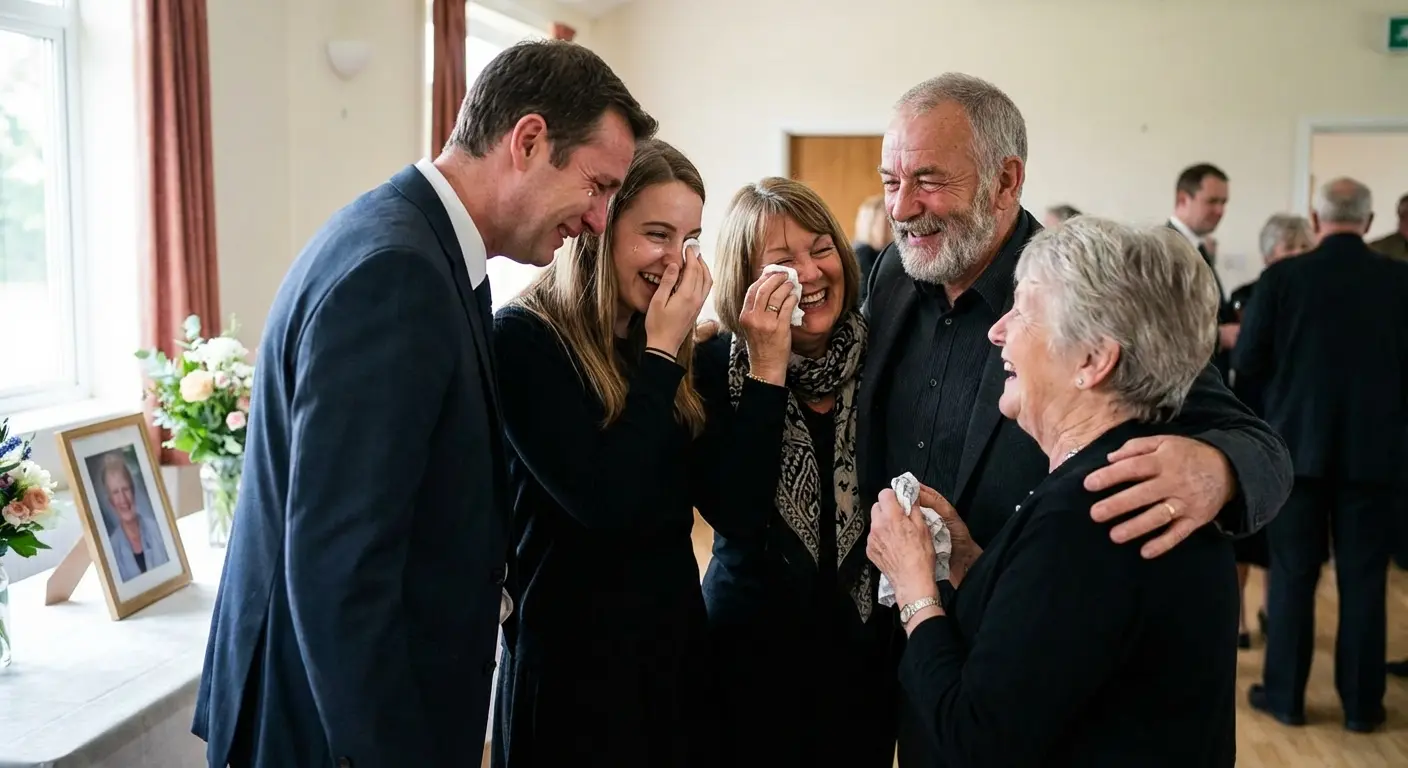
Take this example: “Everyone knows Jane was a terrible driver. I remember the time she backed into the mailbox—twice in one day. She got out, looked at the dent, and said, ‘Well, it looked lonely standing there.’ That was Jane: always finding a way to spin a disaster into a joke.”
Surviving the Delivery
Writing it is one thing. Standing up there and saying it is another. Here is the physical reality of standing at that podium and how to get through it without crumbling.
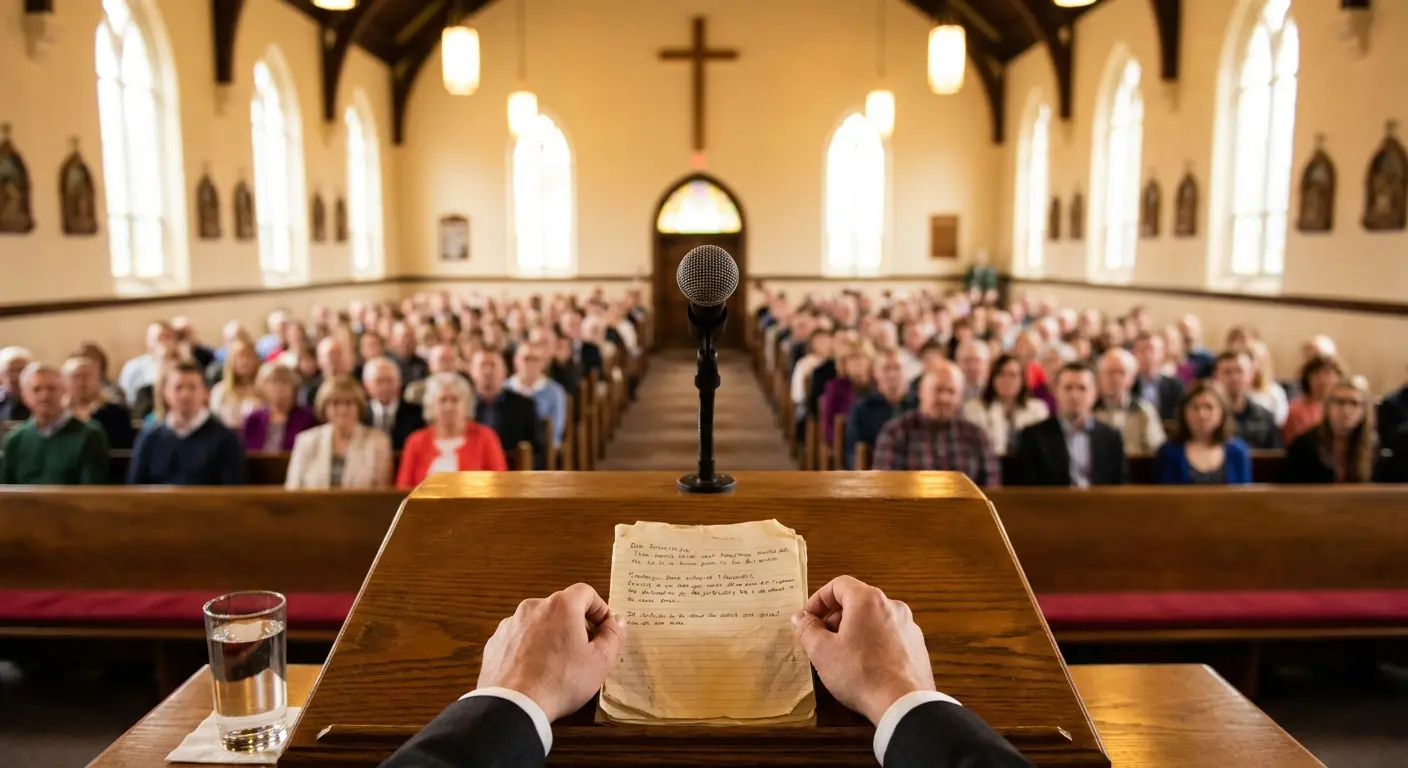
The Survival Kit
Small details make a huge difference when your nerves are fried.
Podium Checklist:
- [ ] Water: A bottle with a cap (so you don’t spill it).
- [ ] Tissues: In your pocket, not just on the podium.
- [ ] The Paper: Print it in HUGE font (size 14 or bigger) with double spacing. Tears blur your vision.
- [ ] Mints: Your mouth will get dry.
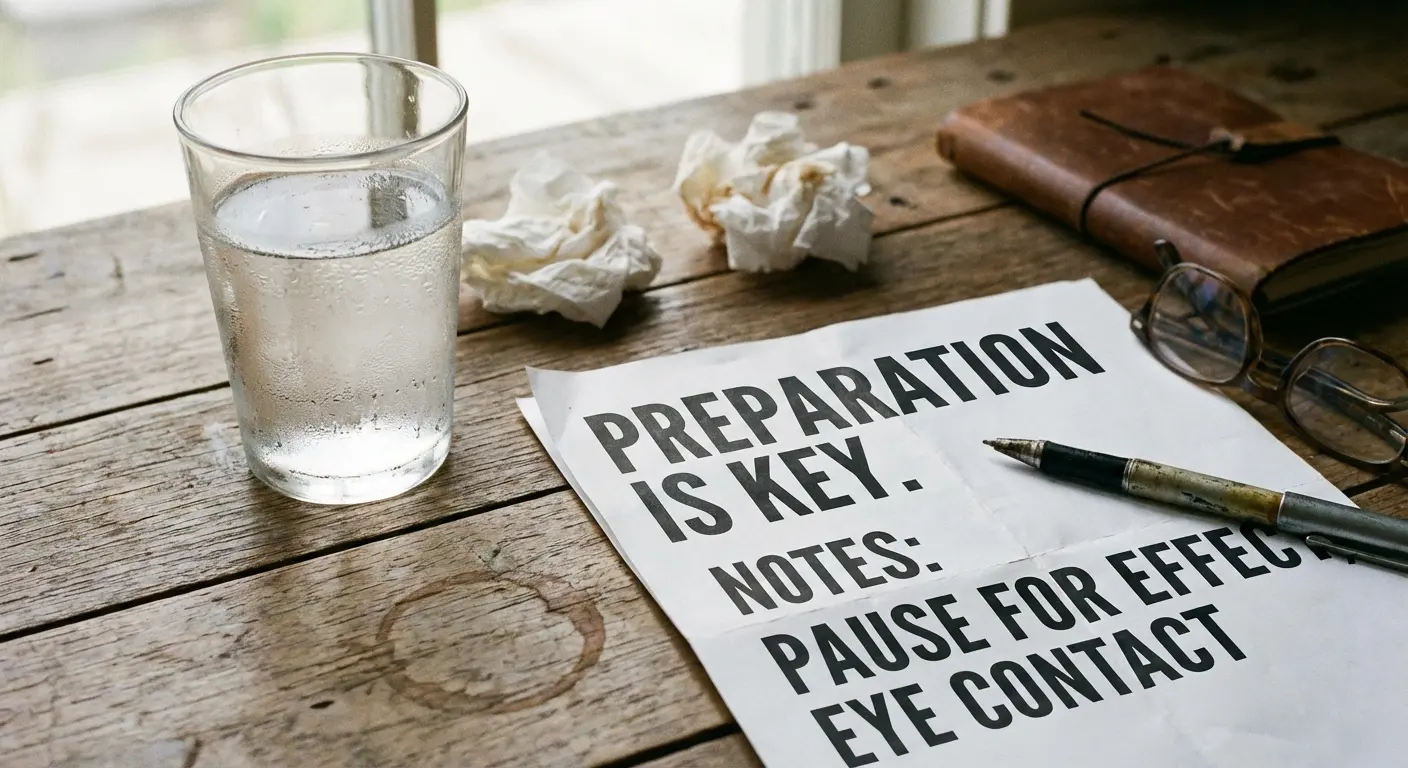
Practice, Practice, Practice
Read it aloud. Time yourself. You want to aim for 3 to 7 minutes. When you know the text well, it acts like an anchor. If you start to cry, you can look down and find your place easily because you know what comes next.
It is normal to be terrified. Public speaking is most people’s number one fear—even above death itself. Acknowledge the fear, take a breath, and remember: everyone in that room is on your team.
Have a Backup Plan
Designate a backup reader. Ask a cousin or close friend to be ready to step in if you physically can’t finish. Just knowing that safety net is there usually relieves enough pressure that you won’t actually need it.
Feel supported from first draft to final delivery with the Sister Eulogy Generator → https://eulogygenerator.com/sister-eulogy-generator/

If You’re Totally Stuck
If you are battling brain fog and just can’t get the words out, don’t beat yourself up. You’re grieving. If you’re worried that using a template will sound robotic, or you just can’t organize your thoughts, tools like Eulogy Generator can help. It works more like an interview—asking you questions to dig up the right stories—rather than just giving you a generic fill-in-the-blank form.
Whether you need something funny or serious, it helps you get a draft done so you can focus on the important part: saying goodbye.
Final Thoughts
Writing this is one of the last acts of love you will perform for your sister. It doesn’t have to be perfect; it just has to be true. Trust your memories and trust your voice. She loved you for who you are, specifically, and that is exactly who should be giving this speech.
Take a deep breath. You can do this.
If you want to end with something poetic, you can check out some poems for sisters, but honestly? Your own words are enough.
